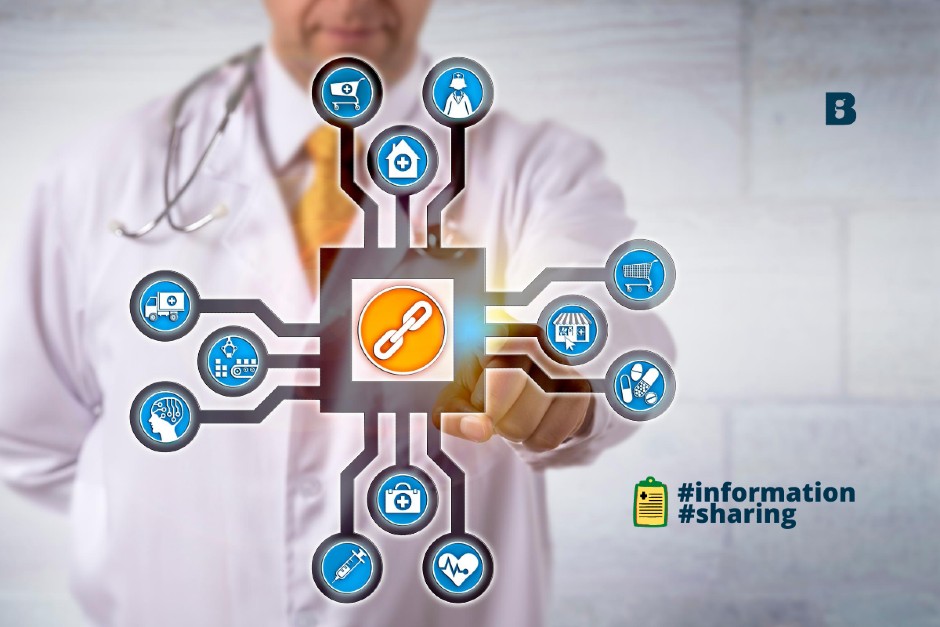Data sharing in the healthcare industry can transform patient care, health institution infrastructure, and help solve global health threats. But even though the benefits greatly outweigh the negative implications, the implementation of a connected and collaborative healthcare ecosystem is highly complex.
It is necessary to explore both the benefits and challenges to successfully uncover a path forward for disease management, pandemic prevention, and a comprehensive healthcare system.
Opening Closed Doors by Sharing Health Data
Health data sharing allows us to gain insight that’s life-saving, cost-effective, and impactful. It is about using data effectively and transforming it into a useful resource. The entire healthcare ecosystem can benefit from revolutionized processes and protocols that enable health data sharing. Collaboration opens the door to boundless opportunities, but that is the dilemma as well as the solution.
Better Outcomes Through Collaboration
Health data sharing has an impact on many aspects of patient care and health organization infrastructure. A fully interoperable health information system within institutions, regionally and globally, offers many benefits for the whole healthcare ecosystem. According to a study on health data sharing from the American Hospital Association, the benefits include:
- Empowered patients and families, giving them access to medical records and options that can help them make well-informed clinical decisions. This empowerment enables them to be better advocates and partners in their care.
- Reduced costs and enhanced efficiency. The ability to share relevant information, including patient matching for organ donation, reduces costs by saving time and resources for patients and insurance companies.
- Robust public health registries, supporting more accurate tracking and prevention measures for disease and public health emergencies.
- Strengthen care coordination, enabling better patient outcomes. Providers, patients, and caregivers can work together to make fully informed decisions with the most recent patient data at their fingertips.
- Improved safety and quality, helping to ensure patients receive the testing and medications they need while avoiding fatal conflicts. This reduction in friction means a safer and more efficient patient care experience.
The Dilemma
Although the benefits greatly outweigh the costs, there are crucial concerns and challenges to data sharing in the healthcare industry. Health information exchange (HIE) platforms created by different vendors use their own “language and translation mechanisms. The only way to translate the various types of data that moves through different platforms are bank-breaking solutions that are generally ineffective, and ineffective opens the door to cybersecurity vulnerabilities.
Cybersecurity vulnerabilities are one of the biggest challenges when sharing data in the healthcare industry. Different standards for patient privacy across states, countries, and types of data stand in the way of true interoperability and its benefits. The Health Insurance Portability Action of 1996 (HIPPA) ensures that private patient information is secure and holds the standard high for appropriate data sharing between institutions.
Moving Forward Together
The healthcare industry’s complex nature does not make it easy to achieve collaboration and communication, even when highly necessary and beneficial. But the complexity does not make it impossible. The American Hospital Association outlines six elements as the most reliable ways of achieving successful data sharing in the healthcare industry.
The six elements include security and privacy; efficient and usable solutions; cost-effective, enhanced infrastructure; system standards that work; collaboration beyond electronic health records; and sharing best practices. These elements provide leaders in the healthcare industry with a foundation where they can build organizational infrastructure that supports health data sharing.
Managing and Mitigating Global Health Emergencies Now and in the Future
Currently, we are amidst a global pandemic. We have discovered that sharing data is one of the most effective ways to mitigate a global health threat. Here, we can refer to one of the benefits mentioned above that states, “Robust public health registers, supporting more accurate tracking and preventions measure for disease and public health emergencies.”
Past public health emergencies clearly illustrate what happens when we do not share healthcare research and data, encouraging delays in treatment discovery and disease management. Applications of the pathways in coordination with policies from lawmakers worldwide serve as a way forward for disease management plans that are all-inclusive.





